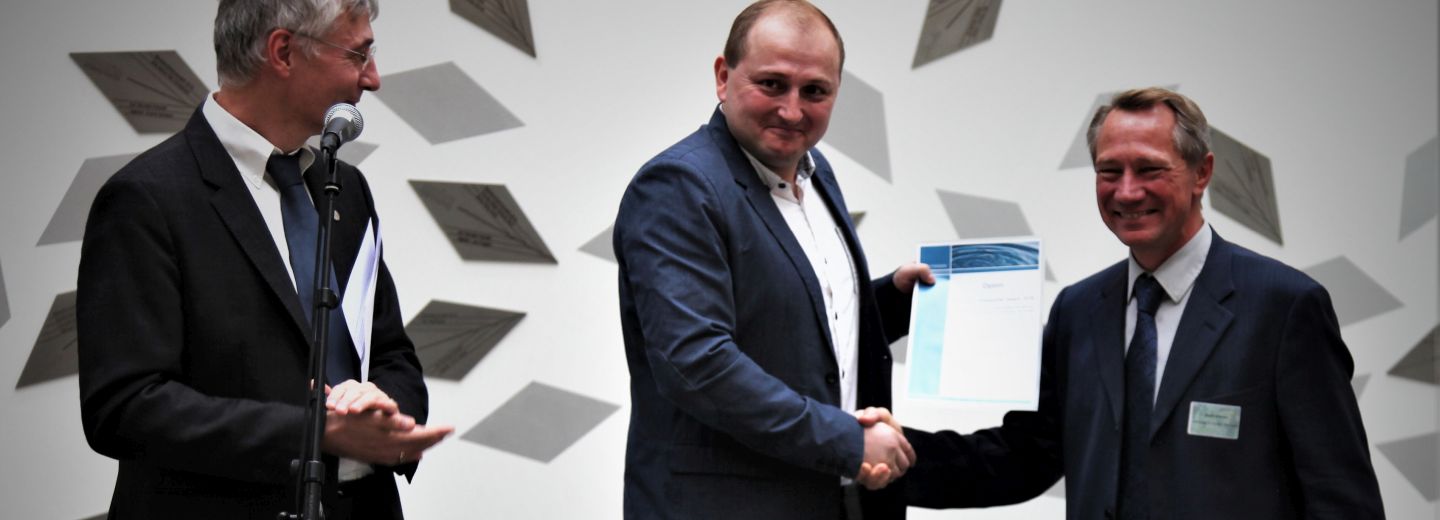
Villum Experiment millions for nano research at MCI
The researchers Jacek Fiutowski and Shailesh Kumar from the Mads Clausen Institute (MCI) at SDU both receive a shade under two million kroner from Villum Fonden in connection with the Villum Experiment programme. Their research can get a large impact on the IT-security and quantum computers of the future, respectively, as well as on new possibilities within, e.g. cancer treatment
Villum Experiment is there for technical and scientific research projects that challenge the norm and have the potential to change the way we approach important topics. This year, the fond has been looking at nearly 500 applications in an anonymous selection process, and it has selected 51 projects worth funding shared among five universities. Two of the applications that managed to get through the eye of the needle, are Room-Temperature Generation of Indistinguishable Single Photons and NanoTrain: Programmable colloidal nanomachine, by research assistant Shailesh Kumar and associate professor Jacek Fiutowski at MCI, respectively.
“Nothing ventured, nothing gained is what counts at Villum Experiment. The purpose of the programme is to find and support exceptional, technical and scientific research projects that challenge the norm and have the potential to change the world and our knowledge about it”, says Villum Fonden’s research director, Thomas Bjørnholm.
Incredibly small, but with an immensely large potential
Both Shailesh Kumar and associate professor Jacek Fiutowski work with nano research. To illustrate how small the dimensions are that we are dealing with within nano research, you can just take a look at the distal joint of one of your fingers. You see, one nanometre equals how much your fingernail is growing per second.
It is difficult to imagine that something so small can have such sweeping effects on our future, but nonetheless, this is the case in both of these research projects.
Clears the way for quantum computers
Shailesh Kumar’s research project strives to create a photon generator that works at room temperature. This is in strong contrast to the possibilities we have today where it is only possible to generate photons at a temperature close to absolute zero (-273 °C) and at very low speed.
If we succeed to speed up the process and get it to work at room temperature, we will be talking about a profound breakthrough in the efforts of creating future’s quantum computers for which the use of light particles (photons) is essential, because photons, in contrast to electrons, have no mass, move at light speed and don’t lose anergy. In this respect, Shailesh Kumar is killing two birds with one stone – he will create many photons at higher speed while generating photons that are completely identical at the same time.
Programmable nano machines
For years, researchers have dreamt about nano machines and nano robots that can interact with objects on the nanoscale, but because sub-micrometre forces are weak and slow, they are hard to control, just like a stable power supply that is hard to attain. Associate professor Jacek Fiutowski meanwhile has a good explanation for, how this can be done.
“Recent research from Oxford University opens up for exciting perspectives where we can develop mechanical nano devices that function as small trains which, for example, can transport medicine around inside the body and stop just where it is needed. This could be in connection to an attack on cancer cells or transport of vaccine. Related to the ongoing COVID-19 pandemic, one could imagine that we send a swarm of nano robots through the body that identify, diagnose and finally infiltrate the virus particles and destroy them from the inside”, says Jacek Fiutowski.
Good examples on MCI research
Head of the Mads Clausen Institute, professor Horst-Günter Rubahn, is of curse proud that two of his researchers received grants from the Villum Foundation.
“Both projects are excellent examples of the kind of research that we are conducting at our research centres NanoSYD and Nano Optics. I am naturally and inexpressibly happy that the Villum Foundation provides time and opportunity to young researchers to focus on their ‘wild’ ideas that aren’t just ideas that drive them but also ideas that potentially can change our future”.
Shailesh Kumar and Jacek Fiutowski receive 1,956,000 and 1,984,000 kroner, respectively. The projects will run for two years.